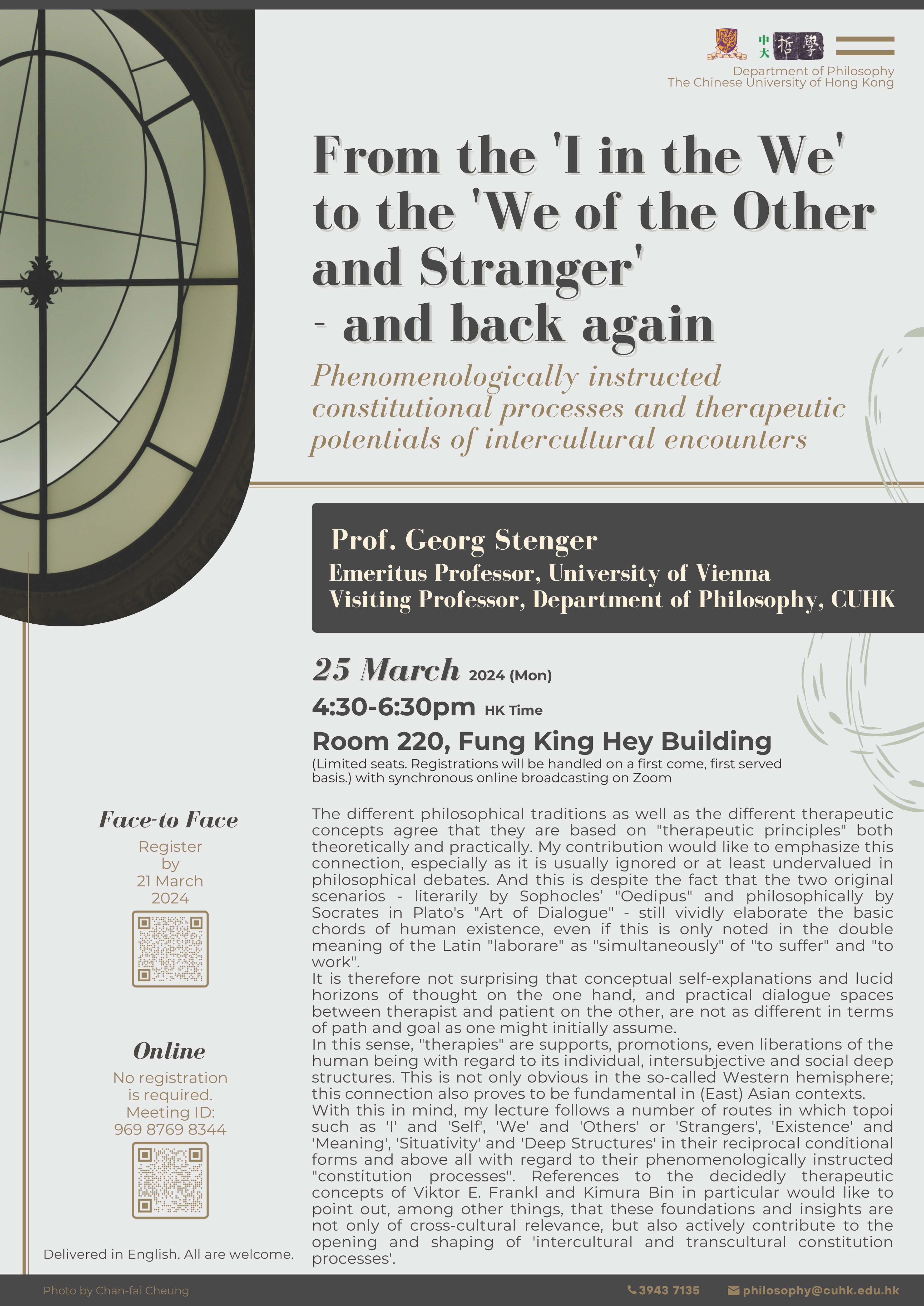From the ‘I in the We’ to the ‘We of the Other and Stranger’ – and back again (Departmental Seminar)

Prof. Georg Stenger |
|
4:30pm-6:30pm HK Time |
|
Room 220, Fung King Hey Building with synchronous online broadcasting on Zoom |
Joining the Seminar face-to-face:
Limited seats for face-to-face seminar. Registrations will be handled on a first come, first served basis.
Register by 21 March 2024: https://cloud.itsc.cuhk.edu.hk/webform/view.php?id=13685376
Joining the Seminar online:
No registration is required.
Link: https://cuhk.zoom.us/j/96987698344
Meeting ID: 969 8769 8344
Enquiries:
Tel: 3943 7135
Email: philosophy@cuhk.edu.hk
Abstract:
The different philosophical traditions as well as the different therapeutic concepts agree that they are based on “therapeutic principles” both theoretically and practically. My contribution would like to emphasize this connection, especially as it is usually ignored or at least undervalued in philosophical debates. And this is despite the fact that the two original scenarios – literarily by Sophocles’ “Oedipus” and philosophically by Socrates in Plato’s “Art of Dialogue” – still vividly elaborate the basic chords of human existence, even if this is only noted in the double meaning of the Latin “laborare” as “simultaneously” of “to suffer” and “to work”. It is therefore not surprising that conceptual self-explanations and lucid horizons of thought on the one hand, and practical dialogue spaces between therapist and patient on the other, are not as different in terms of path and goal as one might initially assume. In this sense, “therapies” are supports, promotions, even liberations of the human being with regard to its individual, intersubjective and social deep structures. This is not only obvious in the so-called Western hemisphere; this connection also proves to be fundamental in (East) Asian contexts.
With this in mind, my lecture follows a number of routes in which topoi such as ‘I’ and ‘Self’, ‘We’ and ‘Others’ or ‘Strangers’, ‘Existence’ and ‘Meaning’, ‘Situativity’ and ‘Deep Structures’ in their reciprocal conditional forms and above all with regard to their phenomenologically instructed “constitution processes”. References to the decidedly therapeutic concepts of Viktor E. Frankl and Kimura Bin in particular would like to point out, among other things, that these foundations and insights are not only of cross-cultural relevance, but also actively contribute to the opening and shaping of ‘intercultural and transcultural constitution processes’.
Delivered in English.
All are welcome.




